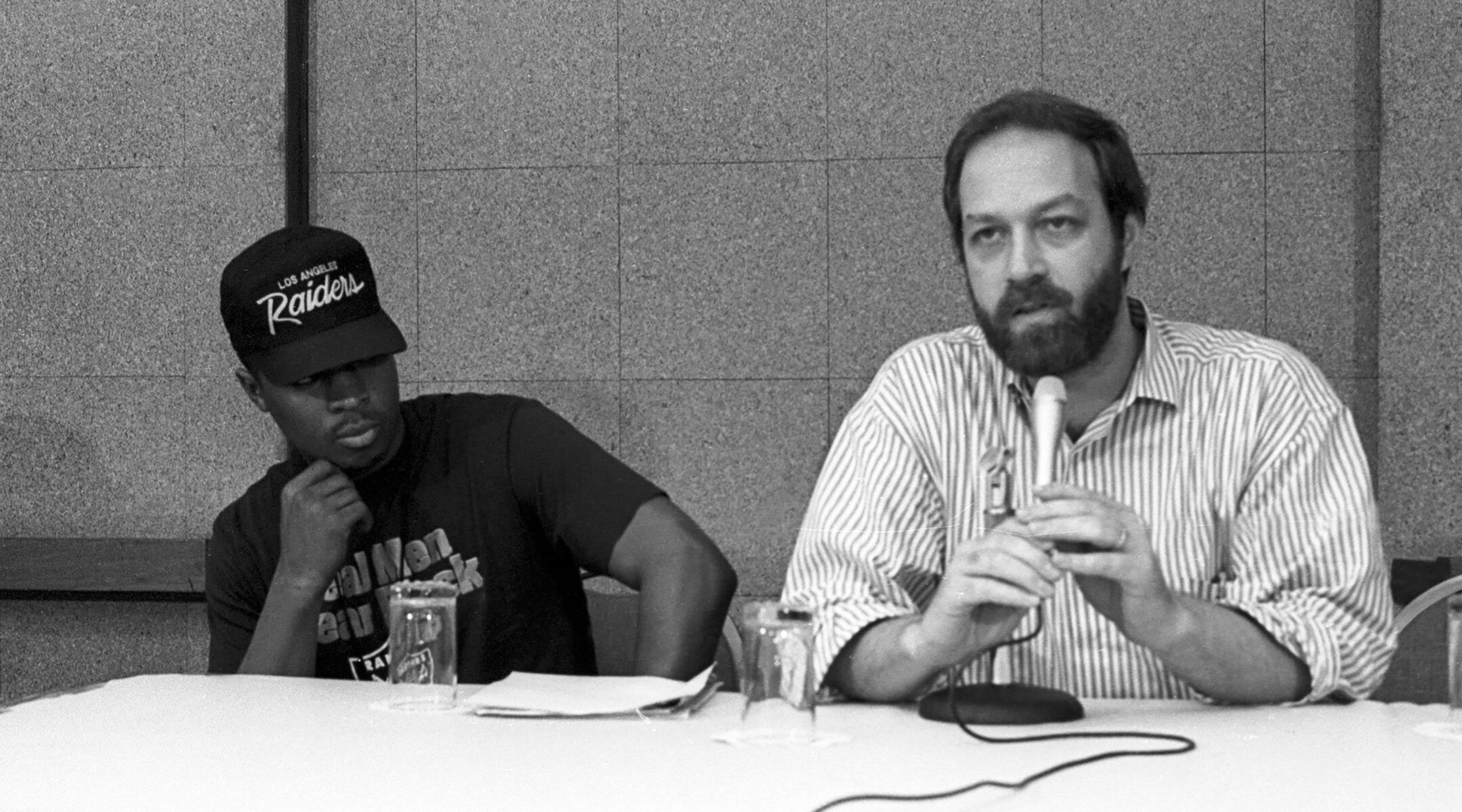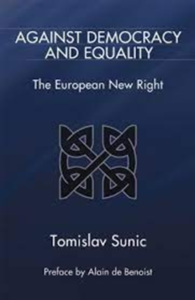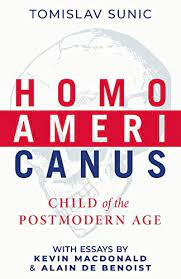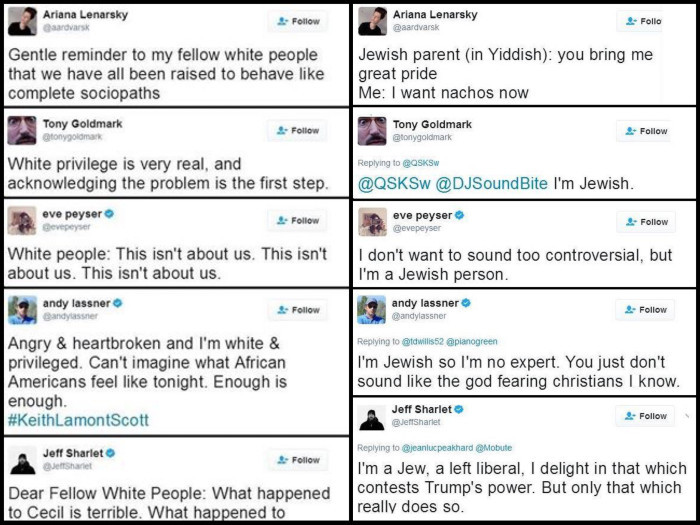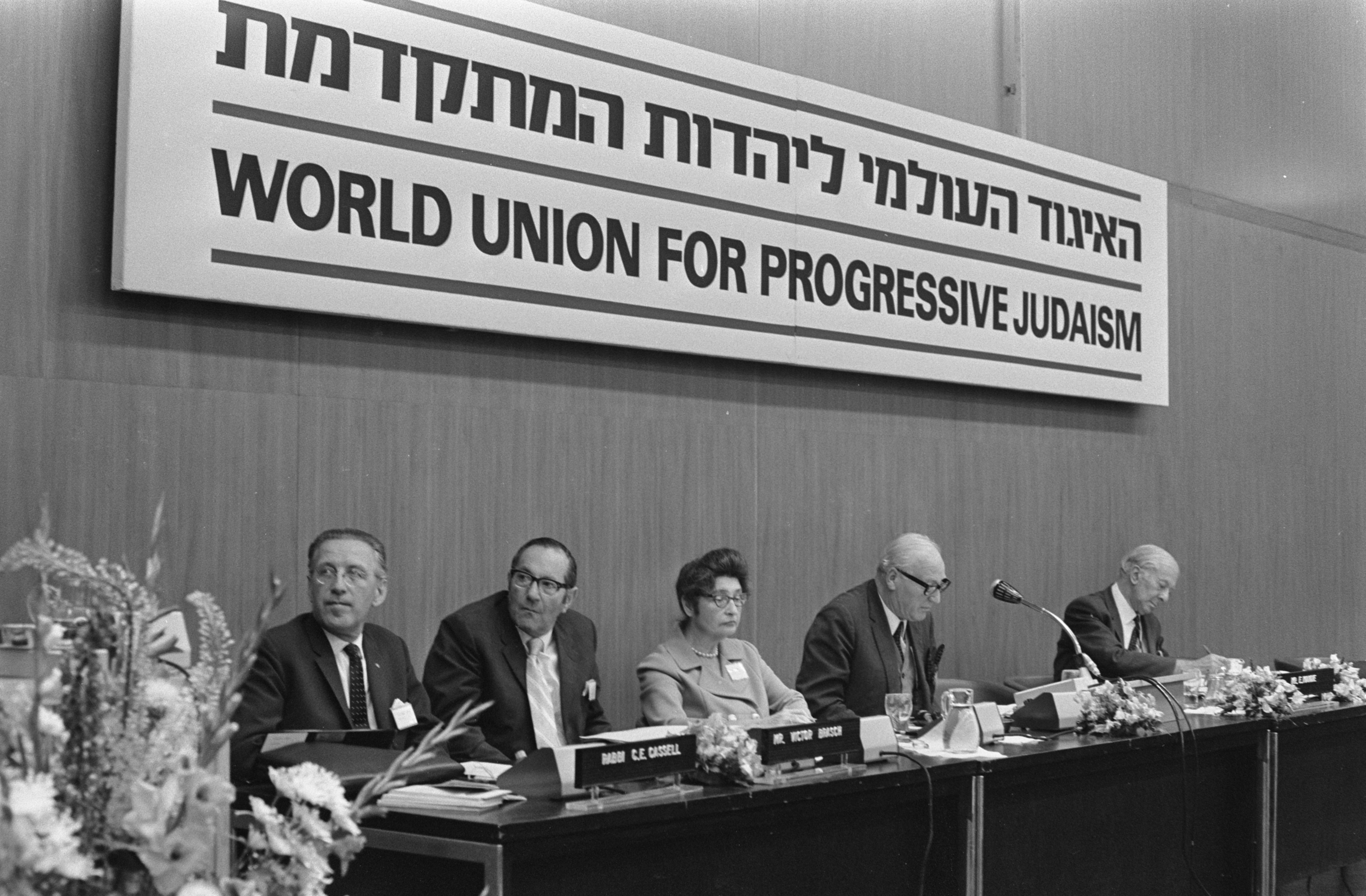“A law against Jew-hatred is usually the beginning of the end for the Jews.”
—Joseph Goebbels, diary (April 19, 1943)[1]
‘Hate’ is such an ugly word. And such a juvenile word. It calls to mind the stereotypical eight-year-old girl who screams “I hate you!” to her mother when she is not allowed to join the local sleep-over. The word is most often used half-jokingly—“I hate the Yankees!”, “I hate broccoli!”, etc.—or to describe some detested task (“I hate cleaning the bathroom”). Or it can be used for rhetorical effect. But the use of the term in the context of ‘hate speech’ is silly, juvenile, and formally meaningless. We may dislike someone or some group, or be repulsed by them, or wish to dissociate from them. But to hate them? Seriously—what mature individual today is willing to openly and earnestly say “I hate you” to anyone? Only a highly insecure or severely distressed person would do such a thing. It’s a sign of weakness.
And yet today, hate seems to be the ethos of the moment. More specifically, we seem to be surrounded by talk of ‘hate speech’ in the mass media. To judge by various headlines and liberal pundits, hate speech would appear to be among the greatest dangers of modern existence—on par with racism and “White supremacy,” and greater than political corruption, international terrorism, global pandemics, financial instability, environmental decline, overpopulation, or uncontrollable industrial technology. Most European countries have legal prohibitions against various forms of hate speech, however ill-defined, as do Canada and Australia. Even in the US there is increasing pressure to create legal sanction for some such concept, the First Amendment notwithstanding.
I take this whole topic very personally. It’s no secret that I’ve written harshly against Jews and other minorities. It’s no secret that I prefer living in a White community and a White nation. I have no need to apologize for any of this. And yet, for these very reasons, some people find it appropriate to call me a ‘hater’: “Dalton hates the Jews”; “he hates Blacks,” “he hates Latinos,” etc., etc. But I state here, for the record, that nothing is further from the truth. I hate no one. I may dislike certain people, I may find them malevolent and malicious, I may want them punished, and I may want to separate myself from them; but this does not mean that I hate them. In this era of “hate crimes” and “hate speech laws,” this requires some explanation.
As usual, we should start by knowing what we are talking about. What, exactly, is it to ‘hate’? The word has ancient origins, deriving from the Indo-European kədes and Greek kedos. Originally, and surprisingly, it meant simply ‘strong feelings’ in a neutral sense, rather than something negative. In fact, the Old Irish word caiss includes both love and hate. But the negative connotation emerged with the Germanic khatis (later, hass), the Dutch haat, and eventually became ingrained in the English ‘hate.’
The standard dictionary definition typically runs something like this: “intense or extreme dislike, aversion, or hostility” toward someone or something. As such, the word is fairly innocuous; I can hate my job, hate asparagus, and even hate my boss. But this is not at issue. We are more concerned about hate as a mindset, and specifically as oriented toward classes of people, or increasingly, toward certain privileged ideologies.
But we immediately confront a major problem here: Hate is a feeling, and feelings are indelibly subjective. And anything that is completely subjective cannot be quantified in objective terms. No one can say with certainty that “Dalton hates X.” Only I can say, “I hate X,” precisely because it is my own feeling. If there is one thing that I insist upon, it is complete sovereignty over my own feelings. No one else will ever dictate how I feel about anything.
And even if I say “I hate X,” how does anyone else know that I really feel the hatred? They don’t. Maybe I’m being sarcastic. Maybe I’m joking. Maybe I’m just trying to cause a stir. No one will ever know my actual feelings except me—precisely because they are my own. No one will ever know if I am expressing “real” hatred, or just pretending. (Does that even matter?)
The point here is that hatred, because it vanishes into a subjective void that is utterly inaccessible to others, can never be quantified or objectified, and thus can never be the basis for legal enforcement—at least, not in any rational sense. Therefore, the corresponding concept of ‘hate speech,’ viewed as the expression of hatred, likewise melts into thin air. It is, technically, an incoherent concept when put forth as a basis for law. This fact, of course, does not stop corrupt lawmakers around the globe from trying to enforce it, though for very different reasons, as I will explain.
So, let’s take a look at how some attempt to define the indefinable. Here is one interesting definition from the Cambridge Dictionary: hate speech is
public speech that expresses hate or encourages violence toward a person or group based on something such as race, religion, sex, or sexual orientation (= the fact of being gay, etc.)
This is a hugely problematic definition, on several grounds. First, how public is ‘public’? If I tell my neighbor, is that public? If I publish something in a private chat room, is that public? What if I mumble something aloud to a friend while in a shopping mall? Am I responsible if a private email to a colleague gets reposted online? And so on.
Second: it involves the “expression of hate,” or “encouragement of violence.” These are two vastly different things. ‘Expression of hate’ is, as I said, functionally meaningless. What, exactly, does it take for something to qualify as an “expression of hate”? Presumably if I say “I hate X,” that counts. But what else? Does “I really, really, really dislike X” count? Does “I’d like to see X die” count? What about “I’d like to see X get very ill”? Does “X is a total scumbag” count? We can see the problems. Incitement to violence is somewhat less ambiguous, but still problematic. Who, for example, is to judge ‘encouragement’? This is another highly subjective term. And how much violence is necessary to qualify? Is a good shove violent? A pie in the face? Tripping someone? Is ‘emotional distress’ violence? What about financial loss?
Third, we notice that it’s not violence per se, but rather violence “based on something such as race, religion, sex, or sexual orientation.” This is very odd. What does the phrase “something such as” mean here? The qualifiers mentioned are usually assumed to be intrinsic to the person or group (race, gender)—except that religion, and even sexual orientation, can be changed at the drop of a hat. Therefore, the qualities need not be intrinsic. So what, exactly, is this mysterious criteria, this “something such as,” that is so crucial for the whole concept?
The point here is that the whole notion of ‘hate speech,’ like hate itself, dissolves into a subjective void. In objective terms, it is virtually meaningless. How, then, can be it be subject to the force of law?
The UN Takes a Shot
As if they don’t have enough on their plate already, the United Nations is now highly distressed by the spread of hate speech around the world. Recently, in May 2019, they issued a short statement called “Strategy and plan of action on hate speech.” It included this observation:
There is no international legal definition of hate speech, and the characterization of what is ‘hateful’ is controversial and disputed. In the context of this document, the term ‘hate speech’ is understood as any kind of communication in speech, writing or behaviour, that attacks or uses pejorative or discriminatory language with reference to a person or a group on the basis of who they are—in other words, based on their religion, ethnicity, nationality, race, colour, descent, gender or other identity factor. This is often rooted in, and generates, intolerance and hatred and, in certain contexts, can be demeaning and divisive.
The key phrases here: “controversial and disputed” (obviously), “any kind of communication” (very broad), “pejorative or discriminatory language” (highly subjective and undefined), and “on the basis of who they are” (mostly intrinsic factors, except for nationality and religion, and possibly “other identity factors”). And then we read the subsequent explanatory paragraph:
Rather than prohibiting hate speech as such, international law prohibits the incitement to discrimination, hostility and violence (referred to here as ‘incitement’). Incitement is a very dangerous form of speech, because it explicitly and deliberately aims at triggering discrimination, hostility and violence, which may also lead to or include terrorism or atrocity crimes. Hate speech that does not reach the threshold of incitement is not something that international law requires States to prohibit.
So, hate speech per se is not to be prohibited, but rather only a special kind of hate speech—“inciteful (to violence) hate speech.” In other words, only the worst of the worst, apparently. Clarification and elaboration would soon follow.
Also, the Foreword to the statement reveals something of the deeper motives at work here. We find, in the opening paragraph, references to “anti-Semitism,” “neo-Nazis,” and the dreaded “White supremacy.” Strange how we inevitably find such terms in any discussion of hate speech; more on this below.
Evidently dissatisfied with this short statement, the UN issued a 52-page “detailed guidance” report, under the same name, in September 2020. Here they establish three levels of hate speech: 1) the worst kind: “direct and public incitement to violence” (including to genocide), 2) a grey zone of hate speech to be prohibited based on “legitimate aims” and only as “necessary and proportionate”, and 3) an unrestricted and lawful form that may still be “offensive, shocking, or disturbing.” Level One (“Incitement”) hate speech in turn is based on, and determined by, six conditions:
- 1) social and political context
- 2) status of the speaker (!)
- 3) intention of the speaker (!)
- 4) form and content of the speech
- 5) extent of dissemination
- 6) likelihood of harm
Level One Hate must satisfy all six criteria, meaning (presumably): a sensitive time or social context, an influential or important speaker, bad intent, provocative style, widely disseminated, and with reasonable probability of harm. Again, all six are required, for Level One status. Levels Two and Three may meet some, or none, of these. The six criteria are elaborated on pages 17 and 18 of the report.
Later in the document we find an interesting admission: “The terms ‘hatred’ and ‘hostility’ should be understood to refer to intense and irrational emotions of opprobrium, enmity, and detestation towards the target group” (p. 13). This is actually quite a relief; any opposition to Jews or other minorities, if rational and non-emotional (e.g., fact-based) cannot count as hate speech! Therefore, writings by scholars, academics, or other serious researchers, who build a case based on facts, history, and plausible inference, are under no circumstances engaging in hate speech. This is a huge loophole that somehow slipped past the ideological censors, one which we should be able to use to our advantage.
We (some of us, at least) get further relief on the following page, where we read that Level Three (allowable) Hate includes not only “expression that is offensive, shocking, or disturbing” but also covers “denial of historical events, including crimes of genocide or crimes against humanity.” As the UN sees it, so-called Holocaust denial is permissible, or at least non-punishable, hate speech.[2] And in Figure 4 they go further still, stating that Level Three hate “must be PROTECTED” as a form of free expression. This is a remarkable concession. Ah, but there’s a catch: “unless such forms of expression also constitute incitement to hostility, discrimination, or violence under article 20 (2) of the International Covenant on Civil and Political Rights.” This document, written in 1966 and made effective in 1976, includes these words under article 20: “Any advocacy of national, racial or religious hatred that constitutes incitement to discrimination, hostility or violence shall be prohibited by law.” So it would seem that, for example, Holocaust “denial” (whatever that means) is not prohibited as long as it avoids any connection to “incitement” of any kind. Presumably discussing it as a historical subject is fine; just don’t implicate anyone today who promotes, exploits, or profits from the conventional Holocaust story.
“It’s always about the Jews!”
So, let’s get down to the rub. I have a tentative hypothesis that I am willing to put forward: Hate speech is by, for, and about Jews. (Oops—is that hate speech?) That is, that hate speech laws have been invented and promoted by Jews, primarily for their benefit. I further hold that Jews are the master-class haters in world history, and that they understand the power of hatred better than any other people. They have furthermore learned how to project their hatred onto others in service of their own ends, including by trickery and deception. Let me marshal whatever evidence I can, mostly implicit, to build a case for this hypothesis.
Start with a little history of Jews and hatred. Perhaps the first explicit connection came way back in 300 BC, in a short writing by Hecateus of Abdera titled “On the Jews.” Only two fragments remain, one of which is relevant: As a result of the Exodus, “Moses introduced a way of life which was, to a certain extent, misanthropic (apanthropon) and hostile to foreigners”.[3] It is striking that, even at that early date, the Jews had a reputation for misanthropy—a hatred of humanity. The same theme recurs in 134 BC, when King Antiochus VII was advised “to destroy the Jews, for they alone among all peoples refused all relations with other races, and saw everyone as their enemy.” The king’s counselor cited “the Jews’ hatred of all mankind, sanctioned by their very laws.”[4] Not only was their hatred notable, so too was the fact that it was “they alone, among all peoples”; the Jews were exceptional haters, it seems.
It is worth further expanding on the idea that Jewish hatred is “sanctioned by their very laws”—by which they mean, the Old Testament. We know, of course, that the Jews viewed themselves as “chosen” by the creator of the universe: “For you are a people holy to the Lord your God. The Lord your God has chosen you to be a people for his own possession, out of all the peoples that are on the face of the earth” (Deut 7:6). Clearly, then, everyone else is second-best. We also know that God supposedly gave the Jews a kind of dominion over the other nations of the Earth. The Book of Exodus states, “we [Jews] are distinct…from all other people that are upon the face of the earth” (33:16). Similarly, the Hebrew tribe is “a people dwelling alone, and not reckoning itself among the nations” (Num 23:9). In Deuteronomy (15:6), Moses tells the Jews “you shall rule over many nations”; “they shall be afraid of you” (28:10). There is Genesis: “Let peoples serve you, and nations bow down to you” (27:29); or Deuteronomy, where God promises Jews “houses full of all good things, which [they] did not fill, and cisterns hewn out, which [they] did not hew, and vineyards and olive trees, which [they] did not plant” (6:11). And outside the Pentateuch, we can read in Isaiah: “Foreigners shall build up your walls, and their kings shall minister to you…that men may bring you the wealth of the nations” (60:10–11); or again, “aliens shall stand and feed your flocks, foreigners shall be your plowmen and vinedressers…you shall eat the wealth of the nations” (61:5–6). What is this but explicit misanthropy, sanctioned by God, and sustained “by their very laws”?
Around 50 BC, Diodorus Siculus wrote Historical Library where, in the course of discussing the Exodus, he observes that “the nation of Jews had made their hatred of mankind into a tradition” (34,1). A few decades later, Lysimachus remarked that the Hebrew tribe was instructed by Moses “to show good will to no man” and to offer only “the worse advice” to others. And in the early years of the Christian era, the writer Apion commented on the Jewish tendency “to show no goodwill to a single alien, above all to Greeks.”[5] Again, repeated observations of Jewish hatred toward Gentile humanity.
The most insightful ancient critique, though, comes from Roman historian Tacitus. His works Histories (100 AD) and Annals (115 AD) both record highly damning observations on the Hebrew tribe. In the former, the Jews are described as “a race of men hateful to the gods” (genus hominum invisium deis, V.3). Somewhat later, he remarks that “the Jews are extremely loyal toward one another, and always ready to show compassion, but toward every other people they feel only hate and enmity” (hostile odium, V.5). But his most famous line comes from his later work, Annals. There he examines the Great Fire of Rome in 64 AD, and Nero’s reaction to it. Nero, says Tacitus, pinned the blame in part on the Christians and Jews—“a class of men loathed for their vices.” The Jews “were convicted, not so much on the count of arson as for hatred of the human race” (odio humani generis, XV.44). Clearly this was the decisive factor, certainly in Tacitus’ eyes and perhaps in all of Rome: that the Jewish odio humani generis, hatred of humanity, was a sufficient crime to banish and even slay them.
I could go on, but the message is clear: The ancient world viewed the Jews as exceptional haters. I could also cite, for example, Philostratus circa 230 AD (“The Jews have long been in revolt not only against the Romans, but against all humanity”) or Porphyry circa 280 AD (The Jews are “the impious enemies of all nations”)—but the point is made.
Importantly, this impression carried on for centuries in Europe, into the Renaissance, the Reformation, and even through to the present day. Martin Luther’s monumental work On the Jews and Their Lies (1543) includes this passage: “Now you can see what fine children of Abraham the Jews really are, how well they take after their father [the Devil], yes, what a fine people of God they are. They boast before God of their physical birth and of the noble blood inherited from their fathers, despising all other people.”[6] Two centuries later, circa 1745, Jean-Baptiste de Mirabaud wrote that “The Jews…were hated because they were known to hate other men.”[7] And then we have Voltaire’s entry on “Jews” in his famous Philosophical Dictionary, which reads as follows:
It is certain that the Jewish nation is the most singular that the world has ever seen, and…in a political view, the most contemptible of all. … It is commonly said that the abhorrence in which the Jews held other nations proceeded from their horror of idolatry; but it is much more likely that the manner in which they, at the first, exterminated some of the tribes of Canaan, and the hatred which the neighboring nations conceived for them, were the cause of this invincible aversion. As they knew no nations but their neighbors, they thought that, in abhorring them, they detested the whole earth, and thus accustomed themselves to be the enemies of all men. … In short, we find in them only an ignorant and barbarous people, who have long united the most sordid avarice with the most detestable superstition and the most invincible hatred for every people by whom they are tolerated and enriched.[8]
British historian Edward Gibbon stated the following in his classic work of 1788, The History of the Decline and Fall of the Roman Empire:
The Jews…emerged from obscurity…and multiplied to a surprising degree. … The sullen obstinacy with which they maintained their peculiar rites and unsocial manners seemed to mark them out a distinct species of men, who boldly professed, or who faintly disguised, their implacable hatred to the rest of human-kind.[9]
A similar observation came from the pen of German philosopher Johann Fichte in 1793:
Throughout almost all the countries of Europe, a mighty hostile state is spreading that is at perpetual war with all other states, and in many of them imposes fearful burdens on the citizens: it is the Jews. I don’t think, as I hope to show subsequently, that this state is fearful—not because it forms a separate and solidly united state, but because this state is founded on the hatred of the whole human race…[10]
Who, then, are the master haters in all of history?
Particularly striking are the words of Nietzsche. A long series of negative comments on the Jews began in 1881 with his book Daybreak, where he observes in passing (sec. 377) that “The command ‘love your enemies’ had to be invented by the Jews, the best haters there have ever been.” So it would seem that the Jews are truly best at something after all: hatred. Then in The Gay Science (1882), Nietzsche sarcastically notes that the Jews are indeed ‘chosen’ people, precisely because “they had a more profound contempt for the human being in themselves than any other people” (sec. 136).
But the most stunning discourse appears in Nietzsche’s work of 1887, On the Genealogy of Morals, where he offers a detailed analysis of hatred from the Judeo-Christian perspective. In short, Jewish hatred is manifested most visibly in their rabbis, religious men, and their priests. Sanctioned by God, priestly hate is the deepest and most profound; it is the hatred of those without tangible power. Jewish hatred then metastasized in Christianity, taking form as its nominal opposite, namely, love. The First Essay is a masterpiece of literature and philosophy; I quote it at length:
As is well known, priests are the most evil of enemies—but why? Because they are the most powerless. From their powerlessness, their hate grows among them into something huge and terrifying, to the most spiritual and most poisonous manifestations. The really great haters in world history and the most spiritual haters have always been priests—in comparison with the spirit of priestly revenge, all the remaining spirits are generally hardly worth considering.
Let us quickly consider the greatest example. Everything on earth which has been done against “the noble,” “the powerful,” “the masters,” “the rulers” is not worth mentioning in comparison with what the Jews have done against them: the Jews, that priestly people, who knew how to get final satisfaction from their enemies and conquerors through a radical transformation of their values, that is, through an act of the most spiritual revenge. This was appropriate only to a priestly people with the most deeply repressed priestly desire for revenge. In opposition to the aristocratic value equations (good = noble = powerful = beautiful = fortunate = loved by god), the Jews, with an awe-inspiring consistency, dared to reverse things and to hang on to that with the teeth of the most profound hatred (the hatred of the powerless)… (sec. 7)
But you fail to understand that? You have no eye for something that needed two millennia to emerge victorious? … That’s nothing to wonder at: all lengthy things are hard to see, to assess. However, that’s what took place: out of the trunk of that tree of vengeance and hatred, Jewish hatred—the deepest and most sublime hatred, that is, a hatred which creates ideals and transforms values, something whose like has never existed on earth—from that grew something just as incomparable, a new love, the deepest and most sublime of all the forms of love: —from what other trunk could it have grown?
However, one should not assume that this love arose essentially as the denial of that thirst for vengeance, as the opposite of Jewish hatred! No: the reverse is the truth! This love grew out of that hatred, as its crown, as the victorious crown unfolding itself wider and wider in the purest brightness and sunshine, which, so to speak, was seeking for the kingdom of light and height, the goal of that hate, aiming for victory, trophies, seduction, with the same urgency with which the roots of that hatred were sinking down ever deeper and more greedily into everything that was evil and possessed depth. This Jesus of Nazareth, the living evangelist of love, the “Saviour” bringing holiness and victory to the poor, to the sick, to the sinners—was he not that very seduction in its most terrible and most irresistible form, the seduction and detour to exactly those Jewish values and innovations in ideals? (sec. 8)
On this view, Christian ‘love’ grows out of Jewish ‘hate,’ like the crown of the tree from its roots. The Jews (and Paul specifically), the master haters, purveyors of the “deepest and most sublime hatred” that has ever existed, created the idea of a saviour who loves everyone. They did so as cover for their hatred of humanity, and as an enticement into their Jewish-inspired worldview—one of a Jewish man-god (Jesus), of Jehovah the Almighty, of heaven and hell. These destructive and nihilistic “values and innovations” could only be foisted upon a humanity that was detested. Christianity was thus the greatest manifestation of Jewish hatred ever conceived.
Nietzsche summarizes his thesis concisely in section 16:
In Rome the Jew was considered “guilty of hatred against the entire human race.” And that view was correct, to the extent that we are right to link the health and the future of the human race to the unconditional rule of aristocratic values, the Roman values.
The nihilistic Christian values—based on a mythical God and an unknowable and perhaps nonexistent future life—managed to undermine and ultimately displace the superior Greco-Roman values that had flourished for 800 years and created the foundation of all of Western civilization. Only an overthrow of Judeo-Christianity and a return to classic, aristocratic values can save humanity at this point. The quoted passage refers, of course, to Tacitus.
We can’t leave the Genealogy without brief mention of a fascinating and humorous allegory on hatred that Nietzsche offers in section 13. There he compares the situation between lowly (Judeo-Christian) haters and the strong and noble (Roman) aristocrats to the opposition that might exist between baby lambs and some nasty predator (Raubvogel), like an eagle. The lambs are innocently and peacefully munching grass in a field, but live in constant fear of a predator who may, at any time, swoop in and snatch them up. The weak lambs are haters; they hate those birds of prey. But the noble eagles don’t hate at all. Nietzsche explains:
But let’s come back: the problem with the other origin of the “good,” of the good man, as the person of ressentiment has imagined it for himself, demands its own conclusion. —That the lambs are upset about the great predatory birds is not a strange thing, and the fact that they snatch away small lambs provides no reason for holding anything against these large birds of prey. And if the lambs say among themselves, “These predatory birds are evil, and whoever is least like a predatory bird, especially anyone who is like its opposite, a lamb—shouldn’t that animal be good?” there is nothing to find fault with in this setting-up of an ideal, except for the fact that the birds of prey might look down on them with a little mockery and perhaps say to themselves, “We are not at all annoyed with these good lambs. We even love them. Nothing is tastier than a tender lamb.”
The noble don’t hate; they rule and dominate. Only the weak hate. The weak haters furthermore seek to portray the strong and noble in the harshest possible terms: “evil,” “killers,” “sinners.” But this is ludicrous, of course. The strong are just doing what is appropriate to their nature. The haters might then try to confuse the strong, to guilt them into changing their behavior, to get them to become ‘weak’ and ‘good’ like the haters themselves. But this would be the death of them, just as a life of munching grass—so pleasant for a lamb—would mean death for an eagle. Nietzsche emphasizes this very point:
[I]t’s no wonder that the repressed, secretly smouldering feelings of rage and hate use this belief for themselves, and basically even maintain a faith in nothing more fervently than in the idea that the strong are free to be weak and that predatory birds are free to be lambs: —in so doing, they arrogate to themselves the right to blame the birds of prey for being birds of prey.
Today, weak and lowly haters—Jews, Jewish-inspired Christians, and Jewish lackeys in the media—have been working hard to convince the strong and noble that they are bad, evil, bigoted, racist, and supremacist. And to the extent that they have succeeded, it has been the death of noble humanity. We must resist this tendency with all our might.
Hate Speech in the Twentieth Century
With growing wealth and financial clout, and with a 2,000-year history of skill in hatred under their belts, organized Jewry began to press the case for legal sanctions against their opponents. With the flood of Jewish immigrants around the turn of the century, it is perhaps not surprising that Jewish legal advocacy took hold in the US. In the first two decades, a number of major pro-Jewish groups emerged, including the American Jewish Committee (1906), the Anti-Defamation League (1913), the American Jewish Congress (1918), and the American Civil Liberties Union (1920). All these groups were de facto anti-hate speech advocates, even if the federal legal apparatus did not really exist at that point. Their focus was on so-called “group libel,” a novel legal concept that was formulated specifically to benefit Jewish interests.
Meanwhile, across the ocean, Jews were making better legal progress in the proto-Soviet Union. The rise of Jewish Bolsheviks from around 1900, including Leon Trotsky and the quarter-Jewish Vladimir Lenin, brought a new concern with anti-Semitism to the Russian Empire. When they took power in the February Revolution of 1917, they immediately set to work to make life better for Russian Jews. Pinkus (1990) explains that these Bolsheviks “issued a decree annulling all legal restrictions on Jews” in March 1917.[11] He adds that, unsurprisingly, “Even before the October [1917] Revolution, Lenin and the Bolshevik Party were hostile to anti-Semitism. Lenin castigated it in the strongest terms on a number of occasions.” As soon as July 1918, the Soviet Council issued a decree (though without legal enforcement) stating that “the anti-Semitic movement and the anti-Jewish pogroms are a deadly menace to the Revolution”; all Soviet workers are called upon “to fight this plague with all possible means”.[12] Lenin himself continued to press his pro-Jewish propaganda; in one short but notable speech of March 1919, he said:
Anti-Semitism means spreading enmity towards the Jews. When the accursed Czarist monarchy was living its last days, it tried to incite ignorant workers and peasants against the Jews. The Czarist police, in alliance with the landowners and the capitalists, organized pogroms against the Jews. The landowners and capitalists tried to divert the hatred of the workers and peasants who were tortured by want against the Jews. … Only the most ignorant and downtrodden people can believe the lies and slander that are spread about the Jews. This is a survival of ancient feudal times, when the priests burned heretics at the stake, when the peasants lived in slavery, and when the people were crushed and inarticulate. This ancient, feudal ignorance is passing away; the eyes of the people are being opened.
It is not the Jews who are the enemies of the working people. The enemies of the workers are the capitalists of all countries. Among the Jews there are working people, and they form the majority. They are our brothers, who, like us, are oppressed by capital; they are our comrades in the struggle for socialism. … Shame on accursed Czarism which tortured and persecuted the Jews. Shame on those who foment hatred towards the Jews, who foment hatred towards other nations.
As (non-Jew) Joseph Stalin rose to power in the 1920s, he found it expedient to continue working with the Soviet Jews and generally defended their status. Consequently, that decade became a sort of ‘golden age’ for Jews; it saw the emergence of the likes of Lazar Kaganovich, Yakov Sverdlov, Lev Kamenev, Karl Radek, Leonid Krasin, Filipp Goloshchekin, and Yakov Agranov—all high-ranking Jews in the Soviet hierarchy.[13] Partly because of this governmental dominance, anti-Semitism among the Russian masses continued to percolate. Eventually, “in 1927, a decision was reached to take drastic steps to repress anti-Semitism.”[14] Various forms of propaganda were employed, including books, pamphlets, plays, and films; the process culminated in harsh legal action against anti-Jewish hate, up to and including the death penalty. Stalin confirmed this in writing in 1931:
Anti-Semitism is of advantage to the exploiters as a lightning conductor that deflects the blows aimed by the working people at capitalism. Anti-Semitism is dangerous for the working people as being a false path that leads them off the right road and lands them in the jungle. Hence Communists, as consistent internationalists, cannot but be irreconcilable, sworn enemies of anti-Semitism. In the USSR, anti-Semitism is punishable with the utmost severity of the law as a phenomenon deeply hostile to the Soviet system. Under USSR law, active anti-Semites are liable to the death penalty.
The Jewish Golden Age in the Soviet Union lasted until the late 1930s, when Stalin inaugurated a retrenchment of Jewish power, apparently in response to the National Socialist stance.[15]
But the Soviet (and Bolshevik) philo-Semitic policies of the 1920s and 1930s were not lost on Hitler. He and Goebbels were relentless, and justified, in their critiques of “Jewish Bolshevism” as a dominant threat to Germany and Europe. Goebbels in particular noted the growing push for ‘hate speech’ and ‘hate crime’ laws in defense of Jews in both the USSR and the UK; for him, this was proof of (a) a deep-seated and imminent mass uprising against the Jews, and (b) an over-playing of their legal authority. Anti-hate laws are a sign of desperation; they indicate that the end-game is near. In a revealing diary entry of 19 April 1943, Goebbels writes:
The Jews in England are now calling for legal protection against anti-Semitism. We know that from our own past, in the times of struggle. But even that didn’t give them much advantage. We’ve always understood how to find gaps in these protective laws; and moreover, anti-Semitism, once it rises from the depths of the people, cannot be broken by law. A law against Jew-hatred is usually the beginning of the end for the Jews. We will make sure that anti-Semitism in England does not cool down. In any case, a longer-lasting war is the best breeding ground for it.[16]
The following month, in his published essay “The War and the Jews,” Goebbels commented on the legal situation in the USSR—the very law that Stalin described above, and that was still in force some 13 years later:
We constantly hear news that anti-Semitism is increasing in enemy nations. The charges being made against the Jews are well-known; they are the same ones that were made here. Anti-Semitism in enemy nations is not the result of anti-Semitic propaganda, since Jewry fights that strongly. In the Soviet Union, it receives the death penalty.[17]
The status of anti-Semitic hate speech laws was of importance to Goebbels right to the very end. In his last major essay, “Creators of the World’s Misfortunes” (1945), he reiterated the significance of the Soviet law:
Capitalism and Bolshevism have the same Jewish roots—two branches of the same tree that in the end bear the same fruit. International Jewry uses both in its own way to suppress nations and keep them in its service. How deep its influence on public opinion is in all the enemy countries and many neutral nations is plain to see: it may never be mentioned in newspapers, speeches, and radio broadcasts.
There’s a law in the Soviet Union that punishes ‘anti-Semitism’—or in plain English, public education about the Jewish Question—by death. Any expert in these matters is in no way surprised that a leading spokesman for the Kremlin said over the New Year that the Soviet Union would not rest until this law was valid throughout the world. In other words, the enemy clearly says that its goal in this war is to put the total domination of Jewry over the nations of the Earth under legal protection, and to use the death penalty to threaten even a discussion of this shameful attempt. It is little different in the plutocratic [Western] nations.
Even at the bitter end, this theme still impressed Goebbels. In one of his final diary entries, he wrote:
The Jews have already registered for the San Francisco Conference [on post-war plans]. It is characteristic that their main demand is to ban anti-Semitism throughout the world. Typically, having committed the most terrible crimes against mankind, the Jews would now like mankind to be forbidden even to think about them.[18]
And indeed, they have succeeded, at least in part. The postwar German Volksverhetzung and the Austrian Verbotsgesetz both stand as among the most embarrassing legal capitulations to Jewish interests in the Western world.
Thus we clearly see the origins of hate speech legislation in the twentieth century: it was first constructed by Jews and their sycophants (like Stalin), both in the US and in the Soviet Union, to quell any looming opposition to their power structure. So intent were they on stifling objection to Jewish rule that they were willing to kill those who opposed them.
To the Present Day
With the growing dominance of Jewish influence in American government over the past five decades, and ongoing influence in Europe, calls to restrict and punish any anti-Jewish commentary via hate speech laws have become ever more strident. The U.S. government—or at least the Republicans—have so far mostly resisted such efforts, but social media has come around to the philosemitic stance. Facebook and Facebook-owned Instagram, Twitter, and Google-owned YouTube, have all taken it upon themselves to censor hate speech, especially of the anti-Semitic variety. Google has altered its search algorithms to de-rank offensive and “hate” sites. All this is perfectly understandable, given the huge Jewish presence atop Big Tech; we need only mention Mark Zuckerberg, Sergei Brin, Larry Page, Larry Ellison, Michael Dell, Sheryl Sandberg, Safra Katz, Susan Wojcicki, Steve Ballmer, Brian Roberts, Marc Benioff, Craig Newmark, and Jeff Weiner, for starters.
Parallel to Big Tech censorship, Jewish advocacy groups like the SPLC and the ADL continue to press civil cases against those ‘haters’ who they believe have violated the rights or reputation of some aggrieved party. The SPLC has a section of its website dedicated to “anti-Semitism and hate speech,” and the ADL—well, that’s their raison d’etre. Third-party lawsuits and tech censorship serve the purpose of implementing de facto pro-Jewish hate speech policies, at least within the U.S.
Conclusion
But to come full circle: I began this piece with a discussion about the logical vagueness and incoherence of the concept of hate speech. Clearly, though, many powerful, Jewish-inspired corporations and politicians find the concept useful. For them, in the most basic and practical terms, it becomes quite simple: Hate speech is any speech that Jews hate. Yes, they may claim to hate anti-Muslim speech or anti-Black speech, but this is so only because it is a necessary corollary to anti-Jewish hate speech. The Jews are not so stupid today as to push for uniquely Jewish, “anti-anti-Semitism” laws; those are a thing of the past. Today, such laws require cover language that, at least in theory, includes other “oppressed” groups. Jews and their defenders must appear universal and fair—when in reality most seem to have utter contempt for virtually all non-Jewish groups (there’s that “hatred of humanity” again). Hate speech is any speech that Jews hate.
Consider: If you hate what I say, who’s the hater? It’s you, not me. The fact that you may not like what I’m saying does not make me a hater. It makes you the hater. And if you happen to be a champion, master-class, world-historical hater, well then—it’s all hate to you.
Thomas Dalton, PhD, has authored or edited several books and articles on politics, history, and religion, with a special focus on National Socialism in Germany. His works include a new translation series of Mein Kampf, and the books Eternal Strangers (2020), The Jewish Hand in the World Wars (2019), and Debating the Holocaust (4th ed, 2020), all available at www.clemensandblair.com. For all his writings, see his personal website www.thomasdaltonphd.com.
[1] Reprinted in Goebbels on the Jews (2019; T. Dalton, ed), p. 199. This and most other books cited below are available at www.clemensandblair.com.
[2] For the record, I am no denier. I believe that there was a Holocaust of the mid-20th century: it was called World War Two, and some 60 million people died as a result of Jewish-instigated actions both here and in Europe. Jewish fatalities seem to have numbered around 500,000, according to the major revisionists. For more on these issues, see my books The Jewish Hand in the World Wars (2019) and Debating the Holocaust (4th ed, 2020).
[3] Eternal Strangers (2020; T. Dalton, ed), p. 16.
[4] Emilio Gabba, “The growth of anti-Judaism,” in The Cambridge History of Judaism (vol. 2, 1984; Cambridge University Press), p. 645.
[5] Eternal Strangers, pp. 19, 21, and 25, respectively.
[6] On the Jews and Their Lies (2020, T. Dalton, ed; Clemens & Blair), p. 53.
[7] Eternal Strangers, p. 68.
[8] Eternal Strangers, pp. 70-71.
[9] The History of the Decline and Fall of the Roman Empire (1788/1974, vol. 2; AMS Press), p. 3. See also Eternal Strangers, p. 59.
[10] Eternal Strangers, p. 78.
[11] Benjamin Pinkus, The Jews of the Soviet Union (1990; Cambridge University Press), p. 84.
[12] In Pinkus, p. 85.
[13] The parallels to the Biden regime are striking; see my recent piece “Confronting the Judeocracy.”
[14] Pinkus, p. 86.
[15] Postwar, Stalin’s purging of high-ranking Jews accelerated, resulting in a decade-long period of virtual state-sponsored anti-Semitism, ending only with Stalin’s death in 1953.
[16] Goebbels on the Jews, p. 199.
[17] Ibid., pp. 206-207.
[18] 4 April 1945, in Goebbels on the Jews, p. 255.

